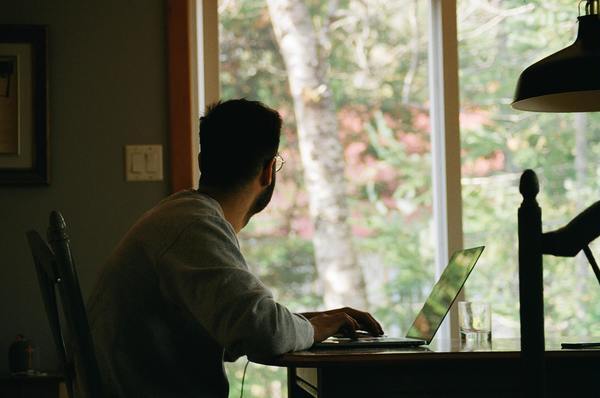
This guy’s wondering if some behavioral scientist is going to write a bad take about him working in his living room today. (Yasmina H/Unsplash)
Recently in the news, there’s been a whole bunch of stuff on workplace culture—mostly in the context of people who once “got” workplace culture no longer getting it, or at least that’s the perception.
The dog and pony show started with Basecamp, which had spent two decades building up a reputation as a workplace with strong fundamentals around productivity and culture, but was undone in about a week of poorly considered ranting on the part of its two leaders.
But while Basecamp’s saga was certainly interesting to watch from the outside (Casey Newton has been killing it on the tech reporting front, side note), the truth of the matter is, I think it’s going to be an opening salvo of people who once got it regarding workplace culture no longer getting it.
This week, a couple of stories of this nature emerged. One came from Jon Levy, a behavioral scientist who wrote an essay speaking against the hybrid office for The Boston Globe in which he argued, among other things, that people needed their commutes so they had time to reflect on their respective days. That point, encapsulated in tweet form, became a popular dunking target:
https://twitter.com/GlobeIdeas/status/1392143440272625672
But it’s not just that. The current CEO of WeWork, who is not the guy who made WeWork kinda like a cult, tried making the self-serving claim that the least-engaged people want to stay home. It was also a popular dunking target.
I’m sure that in both of these cases these people mean well, but they come at times when people don’t want to hear it. I think during most times, commentary like this feels right because it speaks to leadership that is trying to figure out some knotty issues within their organization. But this underplays the fact that it also has a very strong effect on the rank and file, some of whom have barely even ventured outside in the past 14 months.
There was some lasting trauma caused by the unexpected shift in life—and that life does not end when people log off for the day. People felt like they lost a whole lot of agency during that time frame, and while they might want to shift back to normalcy at some point, it is not something that they will be able to do at the drop of a hat.
I think whether or not people feel like they can go back to an office on a full-time basis is an open question, but it’s also a personal one and one that should not be forced. For one thing, we do not need to force it: We have a lot of evidence that people can be productive and do amazing things without the benefit of a workplace or a collaborative whiteboard.
But I think it requires a lot of empathy right now, and takes that question the level of productivity of remote employees after the pandemic should be seen as exactly what they are: the wrong take.
Let’s get back to a semblance of normalcy before we pile on with the bad remote-work takes. Thanks.
Time limit given ⏲: 30 minutes
Time left on clock ⏲: 4 minutes, 47 seconds



